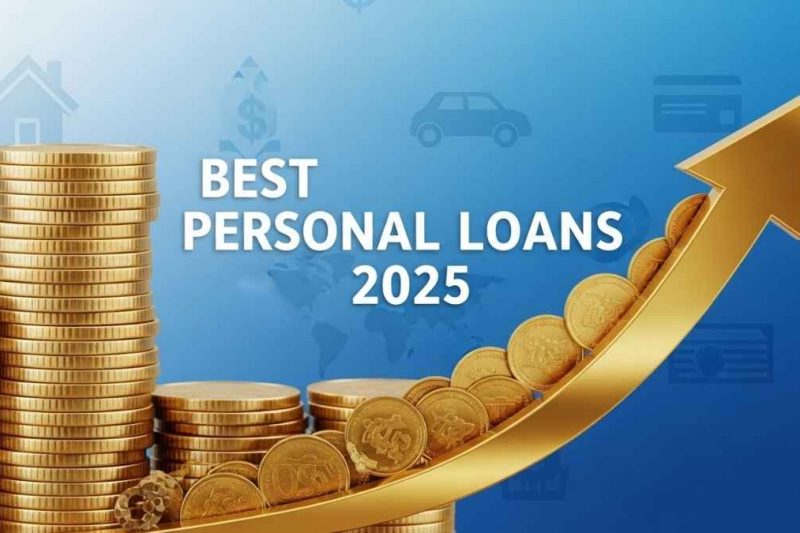Debt can feel like a heavy weight on your shoulders, making every financial decision feel like a balancing act. Whether it’s credit card bills, personal loans, or medical expenses, managing multiple debts with varying interest rates and payment dates can quickly become overwhelming. Fortunately, there is a way to simplify your finances and take control of your debt: a debt consolidation loan.
In this article, we’ll dive deep into what debt consolidation loans are, how they work, their pros and cons, and how you can determine if this option is right for you. We’ll also address some of the most common questions people have about debt consolidation.
What is a Debt Consolidation Loan?
A debt consolidation loan is a type of loan used to pay off multiple debts, consolidating them into a single, more manageable loan. Instead of juggling various payments to multiple creditors, you combine all of your outstanding debts into one monthly payment. This can often lead to a lower interest rate and more favorable terms, especially if you have a strong credit score.
The key idea behind debt consolidation is simplicity and efficiency—having just one payment each month instead of multiple can reduce stress and make managing your finances easier.
How Does a Debt Consolidation Loan Work?
The process of debt consolidation involves taking out a new loan to pay off your existing debts. Typically, this loan is an unsecured personal loan or a balance transfer credit card. Here’s how it works:
Apply for a Loan: You apply for a consolidation loan with a lender, either online or through a traditional financial institution. The loan will be based on your creditworthiness and financial situation.
Pay Off Existing Debts: Once approved, the consolidation loan is used to pay off your existing debts, whether it’s credit cards, medical bills, or other personal loans.
Single Payment: Going forward, you only need to make one payment each month to the lender, usually at a lower interest rate than the combined rates of your previous debts.
Potential for Better Terms: Depending on your credit score and financial situation, you may be able to secure a lower interest rate, which could save you money in the long term.
Types of Debt Consolidation Loans
There are two primary types of debt consolidation loans:
1. Personal Loans for Debt Consolidation
Personal loans are often used for debt consolidation. These loans are typically unsecured, meaning they don’t require collateral (like your home or car) to secure the loan. Instead, the loan is based on your creditworthiness and your ability to repay.
Advantages: These loans often come with fixed interest rates and predictable monthly payments. If you have good credit, you may qualify for a low-interest rate.
Disadvantages: If you have poor credit, the interest rate may be higher, making the loan less beneficial.
2. Balance Transfer Credit Cards
Another option for debt consolidation is a balance transfer credit card, which allows you to transfer your existing credit card balances to a new card with a lower interest rate (sometimes 0% for an introductory period).
Advantages: If you can pay off the balance during the introductory period, you could potentially avoid paying any interest at all.
Disadvantages: After the promotional period ends, the interest rate can skyrocket. Additionally, balance transfer cards often come with fees and may only allow you to transfer a limited amount of debt.

Pros and Cons of Debt Consolidation Loans
As with any financial decision, there are pros and cons to consider when opting for a debt consolidation loan.
Pros
Simplifies Payments: Instead of managing multiple debts with different interest rates and due dates, you’ll only have to make one payment.
Lower Interest Rates: If you qualify for a debt consolidation loan with a lower interest rate than your current debts, you can save money in interest over time.
Fixed Repayment Terms: Most debt consolidation loans have fixed repayment schedules, meaning you’ll know exactly when your debt will be paid off.
Improved Credit Score: If you keep up with your new loan’s payments, it can help improve your credit score by reducing your overall debt and showing that you can manage your finances effectively.
Cons
Fees: Some lenders charge origination fees or balance transfer fees, which can add to the total cost of consolidating your debts.
Risk of More Debt: If you don’t change your spending habits, you could end up accumulating more debt even after consolidating. This can put you back in the same position you were in before.
Higher Loan Amount: While the interest rate may be lower, you could end up borrowing more money than you originally owed, which means you’ll pay more in the long run.
Is a Debt Consolidation Loan Right for You?
Debt consolidation loans can be a great solution for many people, but they’re not for everyone. Here are some factors to consider when deciding if a debt consolidation loan is the right option for you:
1. Your Credit Score
If you have a good credit score, you’re more likely to secure a loan with a lower interest rate. On the other hand, if your credit score is low, you may not qualify for a loan with a favorable rate, which could make debt consolidation less beneficial.
2. Your Debt-to-Income Ratio
Lenders will also consider your debt-to-income ratio (DTI), which compares your monthly debt payments to your monthly income. A high DTI can make it harder to qualify for a loan, so it’s important to address any underlying financial issues before applying.
3. Your Financial Habits
Debt consolidation can be an effective tool for reducing debt, but it requires discipline. If you consolidate your debts and continue to rack up credit card balances, you may end up deeper in debt than before.
4. Type of Debt
Debt consolidation works best for high-interest, unsecured debt, such as credit card balances. If your debts are secured (like a mortgage or car loan), consolidating them may not be an option.
How to Apply for a Debt Consolidation Loan
If you decide that a debt consolidation loan is the right option for you, here’s how to apply:
Check Your Credit Score: Before applying, check your credit score to see where you stand. A higher score increases your chances of getting a low-interest rate.
Evaluate Your Debt: Make a list of all your debts, including the amount owed, interest rates, and monthly payments. This will help you determine if a debt consolidation loan will save you money.
Shop Around for Lenders: Compare offers from various lenders, including banks, credit unions, and online lenders. Pay attention to the interest rates, fees, and repayment terms.
Apply for the Loan: Once you find a loan that fits your needs, submit an application. You’ll need to provide information about your financial situation, including your income, expenses, and current debts.
Use the Loan to Pay Off Debts: If you’re approved, the lender will provide you with the funds to pay off your existing debts. Make sure to pay off the full balance on each of your accounts.
Stick to the Plan: Make your monthly payments on time and avoid accumulating new debt. The goal is to pay off the loan and improve your financial situation.
FAQ Section
Q: Can I consolidate secured debt (like my mortgage or car loan)?
A: Debt consolidation typically works best for unsecured debt, such as credit card balances or personal loans. Secured debts like mortgages and car loans usually cannot be consolidated in the same way. However, you may be able to refinance or modify the terms of secured debt.
Q: Will debt consolidation hurt my credit score?
A: Initially, your credit score may dip slightly because applying for a loan results in a hard inquiry on your credit report. However, if you make your loan payments on time and reduce your overall debt, your credit score can improve over time.
Q: What happens if I miss a payment on my consolidation loan?
A: Missing a payment can hurt your credit score and may result in late fees or higher interest rates. It’s important to stay on top of your payments to avoid falling into the same cycle of debt.
Q: Can I use a debt consolidation loan to pay off student loans?
A: While you can use a personal loan to pay off student loans, it may not be the best option. Student loans often have lower interest rates than personal loans, and consolidating student loans through a debt consolidation loan could lead to higher interest rates and fewer repayment options.
Q: Can debt consolidation solve all my financial problems?
A: Debt consolidation can help simplify your debt payments and potentially lower your interest rates, but it’s not a cure-all. You’ll need to address any underlying spending habits and make sure you don’t accumulate more debt in the future.



